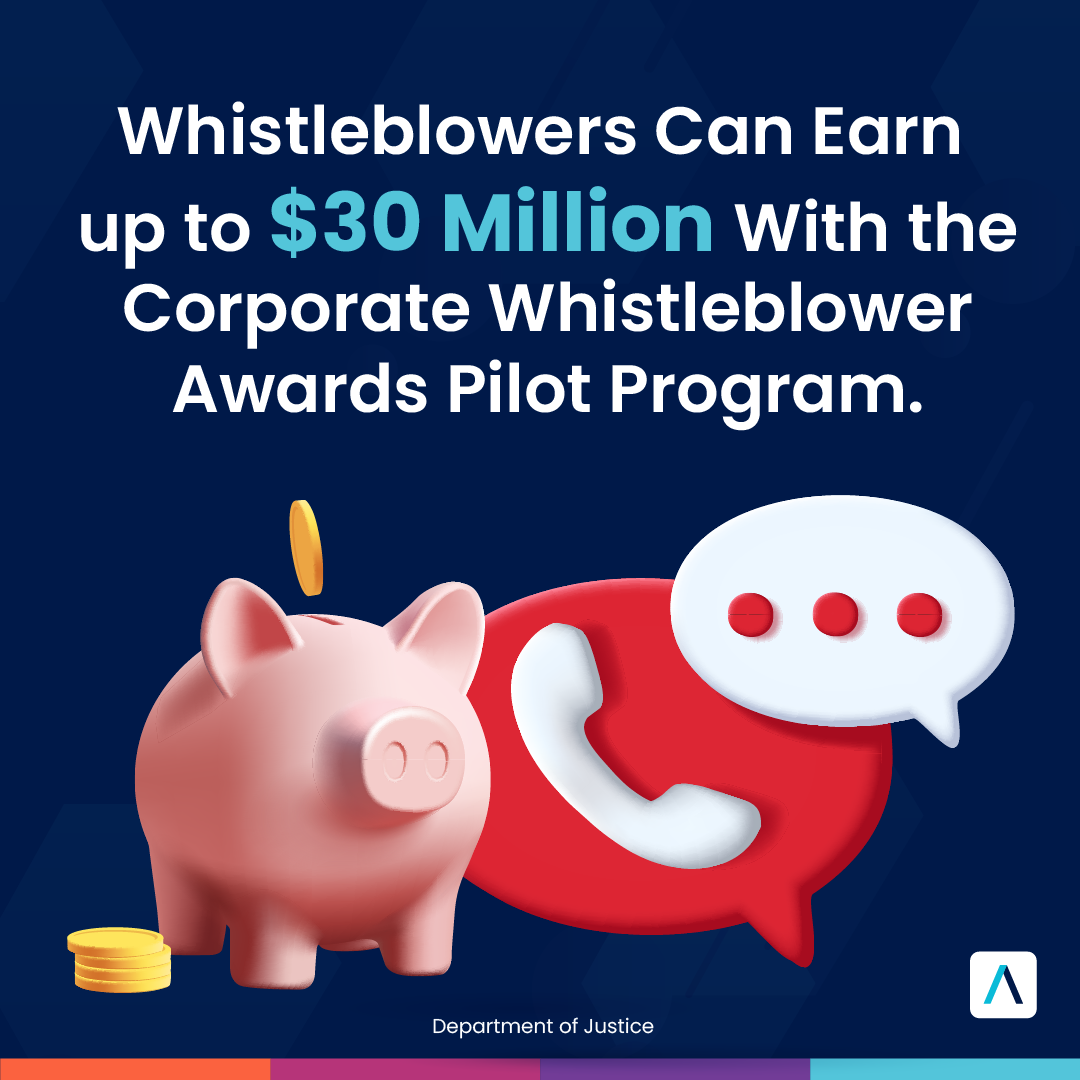How the SEC’s Record-Breaking $8.2 Billion in Penalties Signals a Paradigm Shift in Corporate Compliance Priorities – And Why Whistleblower Protections Are More Crucial Than Ever.
The SEC’s fiscal year 2024 enforcement results signal a pivotal moment for U.S. capital markets. Despite a 26% decline in the total number of enforcement actions compared to 2023 (sitting at a total of 583 for this year), the Commission secured a record-breaking $8.2 billion in financial remedies (its highest in its history). This includes $6.1 billion in disgorgement and $2.1 billion in civil penalties.
One notable driver of these results? Whistleblower protections and incentives. With whistleblower tips often serving as the catalyst for high-profile enforcement actions, regulators are doubling down on the need for robust reporting mechanisms.
For businesses, this isn’t just about regulatory compliance; it’s about creating a culture where employees feel empowered to report concerns without fear of retaliation. By strengthening whistleblower protections, integrating comprehensive reporting systems, and staying one step ahead of global whistleblowing trends, organizations can foster trust, mitigate risks, and proactively address enforcement actions.
And while regulatory bodies like the SEC intensify focus on accountability, particularly in high-profile cases, we’re seeing a simultaneous rise in the number of self-reported issues, corrective actions taken, and cooperation with ongoing investigations. In other words, organizations are transitioning from reactive to proactive compliance models, moving beyond simply avoiding penalties to creating sustainable, strategic compliance frameworks that integrate whistleblower protections at their core.
A Standout Commitment: Protecting Whistleblowers & Prioritizing Accountability
The SEC’s 2024 enforcement results highlight a strong emphasis on whistleblower protections and individual accountability. Firms attempting to infringe on whistleblower rights faced significant penalties, underscoring the SEC’s commitment to safeguarding those who expose corporate misconduct.
Beyond this, the agency reinforced its dedication to holding leaders accountable, particularly in cases where executives misled investors or failed to uphold compliance standards.
These actions reflect a broader effort to enhance trust and integrity across the financial sector while deterring unethical practices at all levels.
Other Key Principles Underpinning the SEC’s Enforcements and Actions
The SEC’s enforcement actions are guided by key principles that ensure compliance with securities laws and promote overarching market integrity. They include:
- Protecting Investors: The SEC investigates fraudulent activities such as insider trading, accounting fraud, and Ponzi schemes.
- Promoting Transparency: Companies are required to disclose material information to ensure investors make informed decisions.
- Deterring Misconduct: Through civil penalties, disgorgement of profits, and bans on future violations, the SEC enforces accountability.
- Encouraging Cooperation: Programs like self-reporting and whistleblower incentives are central to its enforcement strategy.
- Evolving with Technology: Increasing focus on digital assets, cybersecurity disclosures, and AI use in trading and compliance.
Turning the SEC’s Record Penalties into a Catalyst for Transformation: Building a Culture of Compliance
The SEC’s historic $8.2 billion in penalties for fiscal year 2024 represents more than a warning to the market — it’s a call to action for organizations to rethink their compliance strategies. As the SEC sharpens its focus, those who adapt quickly and strategically will not only avoid penalties but also gain a competitive edge in a compliance-conscious market.
The future of compliance isn’t just about adhering to rules; it’s about embedding resilience, innovation, and integrity at the heart of business operations. Organizations can leverage this moment to move from reactive compliance to more proactive, transformative models by:
- Investing in technology: Use AI and automation to monitor, flag, and mitigate risks in real time. Ensure your systems are adaptable to regulatory changes, such as those seen in the SEC’s updated focus areas.
- Regularly auditing compliance programs: Conduct frequent assessments to identify gaps in policies and procedures before they become enforcement issues.
- Emphasizing whistleblower protections: Create safe and anonymous reporting channels for employees to report concerns, reinforcing a culture of transparency.
- Training leaders: Educate executives on whistleblower rights and the importance of protecting those who come forward.
- Scenario planning: Simulate enforcement scenarios to stress-test your compliance measures and prepare your team for potential regulatory challenges.
- Monitoring regulatory updates: Keep track of changes in enforcement focus areas, such as data quality metrics or individual accountability, to anticipate new requirements.
- Communicating with stakeholders: Share your compliance initiatives with regulators, investors, and employees to demonstrate your commitment to ethical practices and keep everyone on the same page.
Making Compliance Work for You, Not Against You
The 2024 enforcement actions underscore a powerful truth: compliance is no longer just about avoiding penalties; it’s about building a resilient, secure, and future-proof business that’s ready for what’s coming next. By adopting proactive risk management practices, organizations not only reduce their exposure to regulatory fines but also unlock opportunities to lead in their industry.
With the SEC increasingly focused on cybersecurity, data privacy, and financial transparency, the ability to automate security and compliance tasks reduces the risk of human error, increases operational efficiency, and ensures consistent, up-to-date compliance with the latest regulatory changes.
In the meantime, learn more about the power of combining compliance training and ethics hotline solutions to strengthen compliance efforts by educating employees and facilitating safe reporting.
Ready to learn more about the benefits of using technology to predict, prevent, and respond to risks in real-time? Get in touch with our team.
Want more insights? Don’t miss these!
Explore Mitratech’s Compliance Training and Anonymous Reporting Hotline
Best-in-class, scalable solutions to help elevate your risk management, responsiveness, resilience, and reputation.



